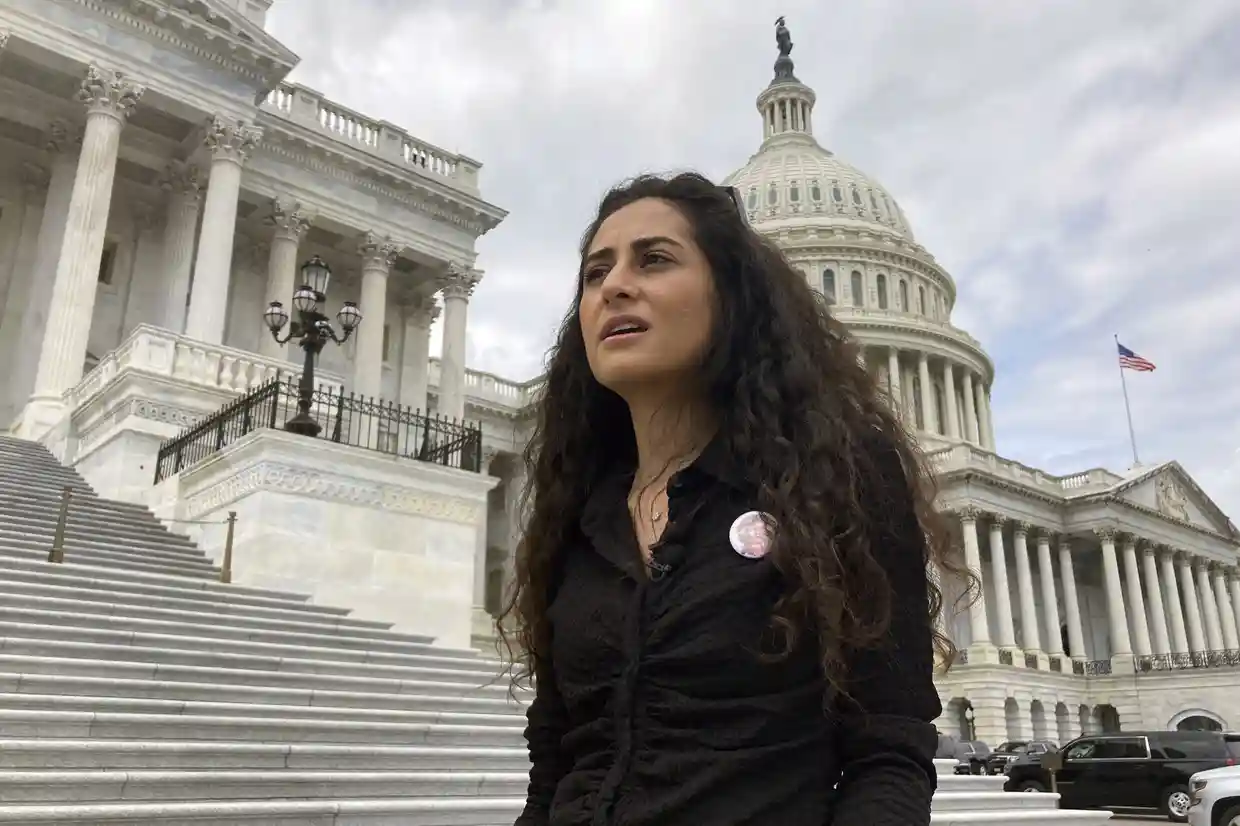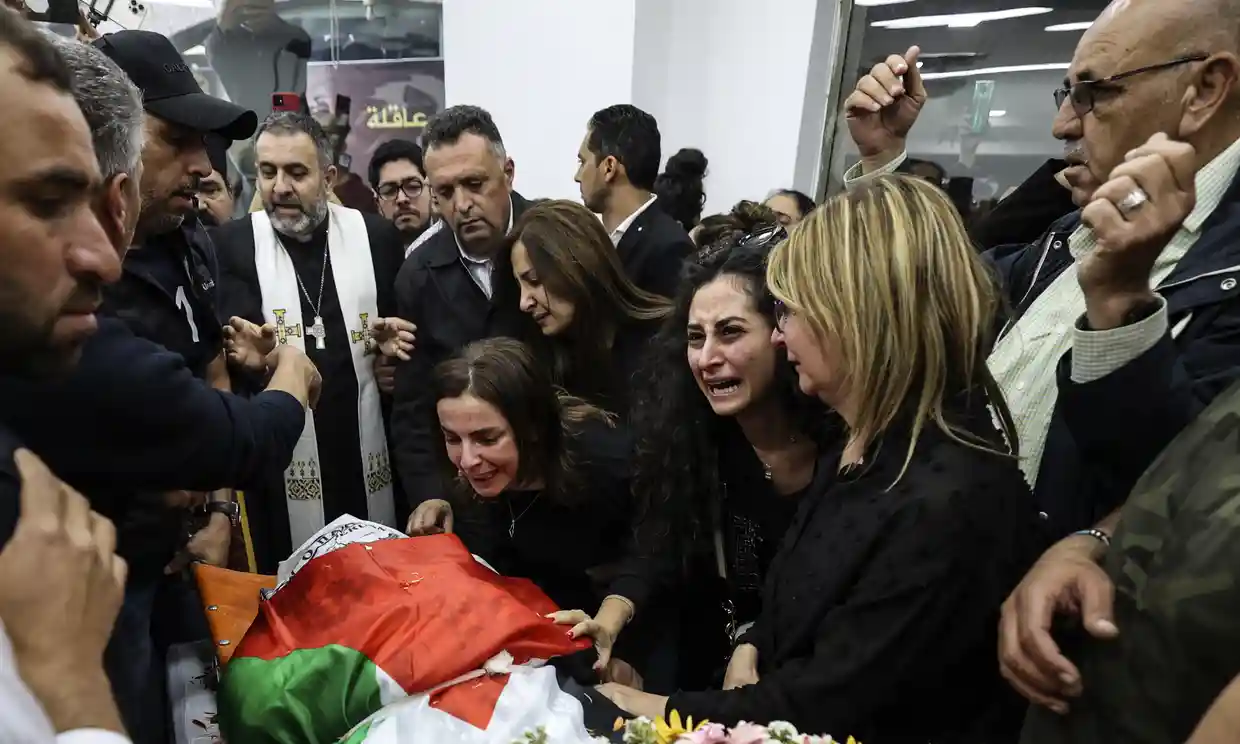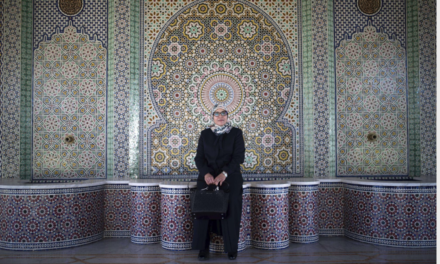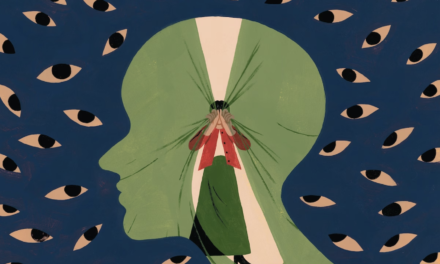Colleagues and friends react as the Palestinian flag-draped body of Shireen Abu Akleh is brought to the news channel’s office in the West Bank city of Ramallah in May. Photograph: Abbas Momani/AP
A new documentary about the Israeli army’s killing of the Palestinian American journalist Shireen Abu Akleh is likely to increase pressure on the Biden administration to ensure that the FBI is permitted to fully investigate her death after Israel said it would not cooperate.
The documentary, Faultlines, by Abu Akleh’s employer, Al Jazeera, is the most detailed account yet of events during an Israeli raid on the West Bank city of Jenin in May.
Through video recordings before and during the shooting, and interviews with other journalists at the scene, the documentary dismantles the shifting Israeli official narrative that at first blamed the Palestinians for killing Abu Akleh and then falsely claimed she was caught in crossfire during a gun battle. Al Jazeera presents video evidence that at least one Israeli soldier was targeting the journalists.
The documentary also raises questions about why the Biden administration embraced Israel’s version of events and resisted an independent US investigation into the killing of an American citizen until pressure from members of Congress forced it to agree to an FBI inquiry.
Video shows Abu Akleh and other journalists gathering at a road junction about 200 yards from an Israeli military convoy. The area is calm as the reporters, clearly wearing large signs identifying them as “press”, advance a few yards down the street toward the Israeli convoy. The first burst of gunfire wounds an Al Jazeera producer, Ali al-Samoudi.
Abu Akleh shouts: “Ali is wounded, Ali is wounded.” She tries to seek shelter behind a tree with another reporter, Shatha Hanaysha. But before she can get there, Abu Akleh is felled by a burst of continuous fire.
When the shooting stops, a clearly distraught Hanaysha can be seen kneeling and reaching out to the fallen Al Jazeera reporter. But as she emerges from behind the tree, another round of fire forces her back.
At that point, Hanaysha did not understand how gravely Abu Akleh was wounded .
“I remember when I saw the blood on the ground, when the blood started coming out, that’s when I realised she had taken a bullet to the head,” she said.
When a young man jumps over a wall to try and pull Abu Akleh out of the line of fire, he is also shot at. He abandons the attempt and instead helps Hanaysha to safety.
The video compilation and eyewitness accounts provide compelling evidence that the Israeli official account of the shooting was riddled with falsehoods. Principally it challenges the claim, which Israel continues to stand by, that Abu Akleh was killed by stray fire in the middle of a gun battle.
The video shows there was no such battle, only bursts of shooting by Israeli forces clearly aimed at the journalists and only them.
The documentary includes a reconstruction demonstrating that, with the typical sights on Israeli guns, soldiers would have clearly seen that the journalists were wearing signs identifying them as press and that they were not carrying weapons.
In addition, several of the bursts of shooting are directed at those attempting to pull Abu Akleh out of the line of fire. They are not advancing down the street and pose no discernible threat to the Israelis.

Lina Abu Akleh, Shireen Abu Akleh’s niece, speaks to the Associated Press at the US Capitol in July. Photograph: Nathan Ellgren/AP
After the shooting, Israel quickly attempted to pin blame for Abu Akleh’s death on the Palestinians. The Israel defense forces (IDF) posted a video in which Palestinian gunmen claim to have shot a soldier. The army used this video to say that as no Israeli soldiers had been shot, it was likely the Palestinians had killed Abu Akleh, mistaking her for a soldier as she was wearing a helmet.
The IDF followed this up with a series of tweets, the last of which again points the finger at Palestinians.
The Israeli prime minister and Israeli foreign ministry then wrote tweets drawing on the IDF assertions to shift responsibility to the Palestinians.
One of Israel’s leading human rights organisations, B’Tselem, swiftly demonstrated the falsity of the IDF claims by showing that the street seen in the video tweeted by the military was some distance from the one where Abu Akleh was killed.
The military then suggested that Abu Akleh was caught in crossfire as “Palestinian gunman fired multiple barrages of gunfire at the IDF soldier”. But, as the documentary shows, there was no gun battle, there were no Palestinian combatants on the scene, and the IDF soldier who shot Abu Akleh was not under fire at the time.
B’Tselem’s director, Hagai El-Ad, told Al Jazeera that the Israeli military had a history of making false claims about the killings of civilians by its soldiers in order to create confusion about what really happened.
“They’re very used to getting away with lying about killing of Palestinians both in the public arena and in the legal arena,” he told the documentary.
“In terms of trying to control the narrative, you can see how their version has changed from ‘it was probably a Palestinian’ to ‘we’re not sure who did it’ to ‘it might have been us’ to ‘it was probably us’. Each change in that narrative wasn’t volunteered by Israel. Each and every change in the narrative was the result of investigations and the facts and they arrived at the point that they had no other choice.”
The Israeli strategy had at least one success. The Biden administration broadly embraced the final IDF account of events that Abu Akleh was probably killed by an Israeli soldier but that the shooting was an accident in the middle of a gun battle.
El-Ad of B’Tselem said that it was “outrageous” for the US to rely on Israeli official reports because they were not intended to get at the truth but to shield IDF soldiers from legal accountability and to win the public relations battle.
“These are sham investigations but a lot of resources are invested in them by the Israeli military,” he said. “It’s deliberate. You arrive at impunity but you don’t pay a price in the public arena because, hey, we’re investigating.”
But not everyone in Washington was persuaded. Dozens of members of Congress demanded that, given Abu Akleh was an American citizen, the US conduct an independent investigation.
Among them was Senator Chris Van Hollen, who rejected the Israeli report. He told Al Jazeera that the Biden administration had not fulfilled its “duty to pursue the facts wherever they lead” to uncover the truth about the killing of an American citizen.
“They appear to have backed off but I believe, and many of my colleagues believe, that we’ve got to get to the bottom of this and that it cannot be swept under the rug,” he said.
That interview was conducted before news leaked in Israel last month that the FBI was, after all, planning to investigate the circumstances of Abu Akleh’s death. Members of Congress who pressed for just such an investigation saw it as a victory for those who refused to let the matter drop, including Abu Akleh’s family, who have campaigned continually for accountability.
Israel said it would not cooperate with the FBI because the investigation was an interference in its internal affairs, even though Jenin is not part of Israel but inside occupied territory subject to the international jurisdiction of the fourth Geneva convention.
Chris McGreal in New York














